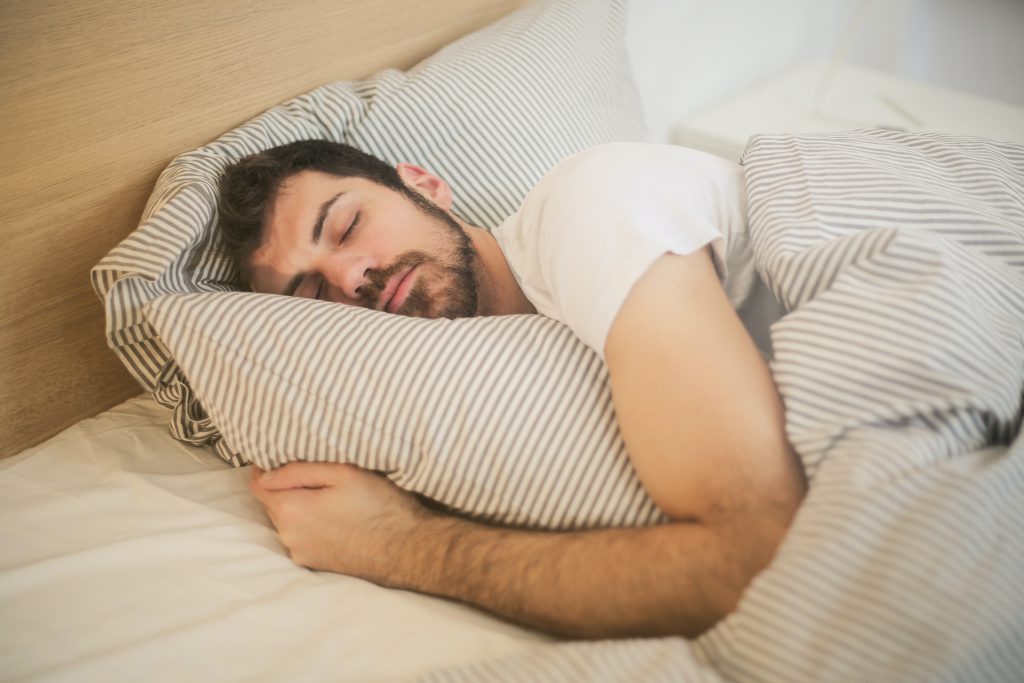Getting a good night's sleep is essential for overall health and well-being, but did you know that it can also play a critical role in achieving your fitness goals? The science of sleep is complex, and recent research has shown that the quality and quantity of your sleep can impact everything from muscle recovery to weight loss.
1. Muscle Recovery
Sleep is crucial for muscle recovery. During sleep, growth hormone is released, which helps to repair and rebuild muscle tissue. Without enough sleep, your muscles may not fully recover from your workout, which can impede progress and increase the risk of injury.

2. Hormone Regulation
Sleep also plays a critical role in hormone regulation. Lack of sleep can lead to an increase in the hunger hormone ghrelin and a decrease in the hormone leptin, which can make it harder to control your appetite and make healthier food choices. Additionally, lack of sleep can also lead to an increase in cortisol, a stress hormone that can lead to muscle breakdown and weight gain.

3. Metabolism
Sleep also plays a role in metabolism. Studies have shown that people who get adequate sleep have a higher metabolism than those who don't. This means that they burn more calories at rest and are more likely to lose weight.

4. Mental Health
Sleep is also essential for mental health. Lack of sleep can lead to mood swings, irritability, and depression, which can make it harder to stick to your fitness goals.

To ensure that you're getting the most out of your sleep and that it's helping you reach your fitness goals, here are a few tips.
1. Stick to a schedule
A consistent sleep schedule can help regulate your body's internal clock, also known as the circadian rhythm. This can make it easier for you to fall asleep at night and wake up in the morning. By going to bed and waking up at the same time every day, even on weekends, your body will become accustomed to the routine and better prepare for sleep.

2. Create a bedtime routine
Having a bedtime routine can help signal to your body that it's time to wind down and prepare for sleep. This can include activities such as reading, taking a warm bath, or listening to soothing music. The key is to make the routine consistent and to perform the same activities each night before bed. This will help your body and mind to relax and prepare for sleep.

3. Avoid screens before bed
The blue light emitted from screens can interfere with the production of melatonin, a hormone that helps regulate sleep. Melatonin is produced in response to darkness, so when you're exposed to blue light from screens, it can signal to your body that it's still daylight and make it harder to fall asleep. To avoid this, try to avoid screens for at least an hour before bed, or use a blue light filter on your devices.

4. Make your bedroom comfortable
Your bedroom should be cool, dark, and quiet to create the best environment for sleep. The ideal temperature for sleep is between 60 and 67 degrees Fahrenheit (15-20 celsius). Keeping your room dark can help to promote melatonin production, making it easier to fall asleep. Additionally, a quiet environment can help reduce the chances of being disturbed by noise during the night.

5. Avoid caffeine and alcohol
Consuming caffeine and alcohol can interfere with sleep by disrupting the body's natural sleep-wake cycle. Caffeine is a stimulant that can make it harder to fall asleep, so it's best to avoid it in the evening, ideally after 2 pm. Alcohol, while it may make you feel drowsy, can disrupt normal sleep patterns, leading to poor quality of sleep.

In conclusion, the science of sleep is complex, but research has shown that it plays a critical role in achieving fitness goals. Adequate sleep is essential for muscle recovery, hormone regulation, metabolism, and mental health. By following good sleep hygiene practices and sticking to a schedule, you can ensure that you're getting the most out of your sleep and that it's helping you reach your fitness goals.
